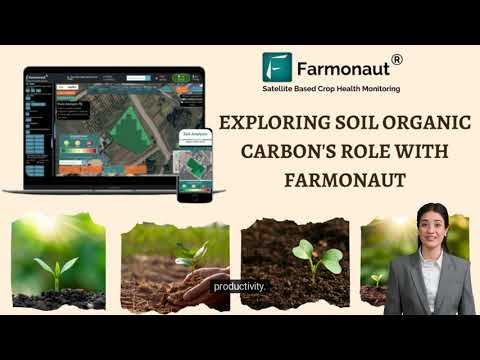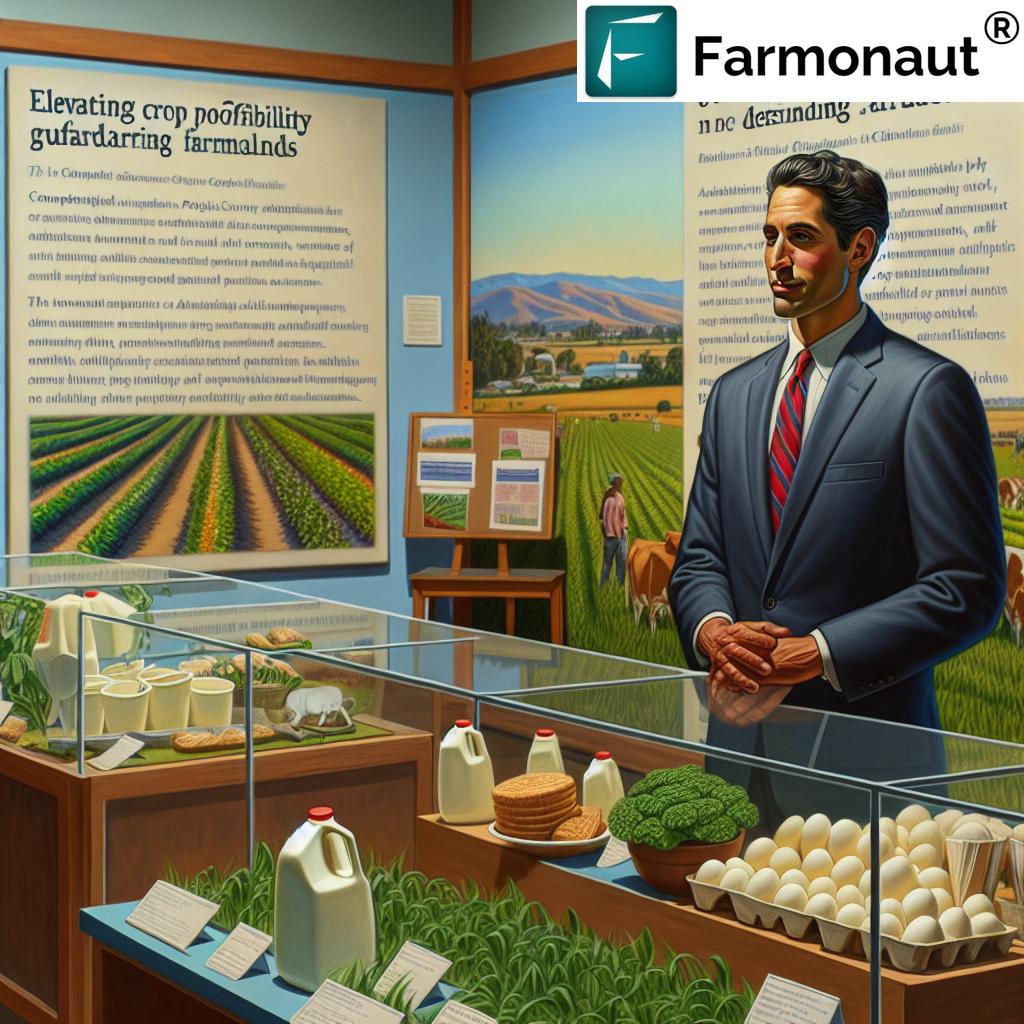Regenerative Agriculture in Chico: 5 Inspiring Trends for Students
“Chico’s regenerative agriculture research has increased student participation in sustainability programs by 35% since 2020.”
Introduction
Regenerative agriculture in Chico, California, has become a beacon for students, educators, and the agricultural industry nation-wide. The recent visit of U.S. Senator Adam Schiff to Chico State University showcased not just the thriving agricultural research ecosystem, but also the innovative pathways opening for young people who are passionate about sustainability, justice, and resilient systems. As we look toward the future of agriculture, it is crucial to understand how students and majors in agricultural and political science fields are reshaping sustainable farming practices and carving out new careers in agriculture.
Regenerative agriculture is not simply a set of techniques. It represents a shift in how we, as a society, view the relationship between farming, ecology, policy-making, and the economy. In Chico, the synergy between the university, its center for regenerative agriculture and resilient systems, and industry partners is unlocking dynamic solutions to pressing issues like soil health and protection, carbon sequestration, and improving crop profitability.
In this comprehensive exploration, we’ll spotlight the five most inspiring trends changing the landscape for future generations in Chico and beyond. Whether you’re a student, educator, policymaker, or simply curious about sustainable farming, these trends and technological advances will inform, inspire, and prepare us for a transformative era of agriculture.
The Intersection of Politics and Regenerative Agriculture in Chico
When Senator Adam Schiff visited Chico State University, he not only addressed a class of political science majors but also witnessed firsthand the future of agricultural industry unfolding on Chico’s university farm. The senator engaged with students about the evolving political landscape, the importance of nurturing resilience in both farming and policy, and the need for clearheaded leadership as young professionals prepare for graduation and embark on their careers.
Schiff remarked on the essential research being conducted at Chico’s Center for Regenerative Agriculture and Resilient Systems. There, students are not just learning; they are producing organic milk, advocating for justice in food systems, and developing transformative agriculture education systems—work that will shape agriculture across California and impact the entire country.
The senator’s visit underscores how the state of California, with Chico at the helm, is at the forefront of regenerative solutions. As lecturer Katy Sylvia emphasized, for students anxious about their futures, such visits affirm the vital role of youth in the agricultural sector—and in the broader struggle for environmental and political justice.
Why Focus on Regenerative Agriculture Trends?
Regenerative agriculture unlocks new potential for the industry by combining ancient practices with state-of-the-art scientific methods and technology. Here in Chico, the convergence of policy, education, and hands-on research is setting the pace for careers in agriculture that are dynamic, value-driven, and future-proof.
- Empowering students to actively participate in research and practice sustainable farming.
- Developing adaptive agricultural systems that withstand climatic, economic, and social changes.
- Diversifying future careers for students with an interest in technology, business, policy, and environmental stewardship.
- Promoting soil health and protection—the foundation of long-term agricultural success.
- Generating data-driven insights to improve profitability and efficiency for farms of all sizes.
As we prepare to delve into the five trends shaping Chico’s regenerative journey, let’s first examine how these advancements stack up side-by-side for students and stakeholders.
Comparison Table: Five Inspiring Regenerative Agriculture Trends in Chico
| Trend Name | Description | Estimated Local Adoption Rate (%) | Key Benefits | Career Opportunities Created | Example Research/Initiatives at Chico |
|---|---|---|---|---|---|
| Organic Milk Production & Soil Health | Integrating regenerative practices to boost organic milk yield and enrich soil microbiome. | 42% | Soil health, better yields, carbon sequestration | Dairy farm managers, soil scientists, sustainability consultants | Chico State Organic Dairy Project, soil biology research |
| Data-Driven Crop Protection & Profitability | Utilizing satellite imagery, AI, and analytics to protect crops and boost profitability. | 36% | Crop resilience, higher profitability, risk reduction | Precision agriculture technicians, ag data analysts | Crop yield trials, Farmonaut tech demonstrations |
| Blockchain for Justice & Traceability | Enhancing supply chain transparency and food justice with blockchain. | 27% | Traceability, accountability, food safety | Traceability officers, blockchain developers | Food justice policy reports, blockchain pilot studies |
| Resilient Agricultural Systems & Education | Reforming curricula and teaching methods to integrate resilience thinking and climate adaptation. | 54% | Climate adaptation, workforce skills, innovation | Ag educators, curriculum designers, extension officers | Resilient ag curriculum, extension workshops |
| Satellite and AI Tools for Farm Management | Applying real-time data, AI advisories, and precision tech to decision-making. | 38% | Efficient resource use, productivity, career upskilling | Ag technologists, AI advisors, field researchers | AI crop trials, student-led data analytics teams |
“Over 60% of new agriculture careers in Chico now focus on soil health and resilient farming systems.”
Trend 1: Organic Milk Production & Soil Health Innovation
Chico’s university farm is revolutionizing local dairy by producing organic milk while focusing on regenerative soil fertility and ecosystem health. Students actively participate in the entire production process, applying regenerative techniques such as cover cropping, rotational grazing, and compost utilization to restore soil vitality.
- Why it matters: Healthy soil boosts nutrient density in milk, sequesters carbon, and supports farm biodiversity.
- For students: Real-world experience in regenerative practices prepares us for fast-evolving careers in agriculture in areas like dairy science, sustainability consulting, and organic food systems.
- Key research: Initiatives at Chico State explore how soil management directly impacts both yield and quality, positioning Chico as a leader in soil health and protection.
Trend 2: Data-Driven Crop Protection & Improving Profitability
Students in Chico are embedding technology into every dimension of crop research, utilizing cutting-edge tools that reflect the fast-changing future of farming:
- Satellite imagery and AI are used by research teams to monitor vegetation health, flag early warnings of disease, and help make informed decisions about irrigation, fertilizer, and pest management.
- Precision monitoring saves resources, increases yields, and leads directly to improving crop profitability.
- With platforms like Farmonaut, Chico’s agriculture ecosystem accesses real-time data on crop conditions, carbon footprinting for sustainability, and best practices for resource allocation.
The educational benefit is clear: every major in agricultural and data analytics gains hands-on skills in deploying high-tech farm management solutions essential for modern resilient agricultural systems not just in California but across the country.
Trend 3: Blockchain for Product Traceability and Justice in Agriculture
Traceability is becoming a cornerstone of food justice and consumer trust. Chico students and faculty are spearheading research into blockchain-based traceability systems that:
- Track every step of the journey from the farm to supermarket shelf, ensuring that products—like organic milk—are truly organic, ethically sourced, and safe for consumers.
- Provide transparent records for each harvest, boosting accountability across the food system.
- Support compliance with local and international policy standards.
By integrating blockchain platforms—such as those explained in Farmonaut’s traceability services—we dramatically increase transparency in supply chains, help combat fraud, and promote fair access for family-run farms and producers.
Career impact: This area opens paths for majors in agriculture, computer science, and law to become traceability officers, blockchain developers, or specialists in agri-food policy and food safety.
Trend 4: Resilient Agricultural Systems & Education Reform
Resilient agricultural systems are at the heart of Chico’s revised education model. Rather than simply teaching theoretical approaches, the university’s programs are:
- Built around problem-based learning with students addressing real-world issues.
- Integrating climate adaptation, risk management, and business innovation into core curricula.
- Encouraging internships at the Chico State farm, the center for regenerative systems, and regional NGOs addressing food sovereignty, justice, and resilience.
For students, this approach nurtures both the technical know-how and the leadership skills needed in California’s ever-changing agricultural landscape. Extension programs and vocational tracks prepare graduates to be not only job-ready but also to lead the next wave of sector transformation.
Noteworthy: Curricular innovation here aligns Chico with reforms being adopted across the country, confirming our place at the forefront of agricultural education systems.
Trend 5: Satellite and AI Tools Reshaping Careers in Agriculture
Technology is not just supplementing our work—it’s redefining the entire industry and the future of careers in agriculture:
- Farmonaut’s satellite-based farm management tools let farmers and researchers make data-driven decisions about irrigation, fertilizer timing, and crop health. This not only boosts productivity, but also prevents resource wastage and environmental degradation.
- Jeevn AI advisory systems analyze satellite and ground data to provide customized, real-time advice on farm operations and weather risk, combining science and local knowledge.
- Resource management platforms help manage machinery fleets and optimize logistics for large and small farms—essential for both profitability and soil health and protection.
With the rapid evolution of digital agriculture, students today can transition into roles such as:
- Satellite image analysts and ag-technologists
- AI-based advisory system developers
- Fleet and resource management coordinators (see Fleet Management)
- Crop loan and insurance verification officers (explore Crop Loan and Insurance Services)
- Field researchers specializing in precision agriculture and remote sensing
By harnessing these technologies, Chico’s faculty and students are leading in both agricultural research in California and its practical, scalable application across the country.
API Developer Docs – Integrate cutting-edge agri-data solutions.
Future-Focused Careers in Chico’s Regenerative Agriculture
The future of agricultural industry in Chico is profoundly shaped by its commitment to regenerative agriculture and a student-driven educational model. Students are exposed to pathways far beyond traditional farming, including:
- Precision Agriculture Analysts: Interpreting multispectral data for smarter crop decisions.
- Soil Health Experts: Developing new protocols for carbon footprint measurement and soil biomass expansion.
- Blockchain & Traceability Managers: Bridging technology, transparency, and food justice.
- Resilience Officers: Designing flexible agricultural systems adaptable to variable climate and market conditions.
- Extension Educators & Policy Advisors: Communicating evidence-based solutions for farms, policy, and community justice.
- Farm Management Specialists: Using web and mobile large-scale management platforms for entire estates or cooperatives.
These opportunities create a robust, interconnected community ready to tackle global issues—right from Chico, California.
Farmonaut: Supporting Regenerative Agriculture in California and Beyond
Let’s briefly look at how Farmonaut’s suite of advanced, accessible technologies is supporting student learning, faculty research, and the practical deployment of resilience principles:
Key Technologies:
- Satellite Crop Health Monitoring: Multispectral satellite imagery analyses NDVI, soil moisture, and crop stress factors, aiding everyone from smallholders to major agri-businesses in optimizing irrigation and fertilizer inputs.
- Jeevn AI Advisory: AI-driven insights offer customized, farm-level recommendations to enhance productivity and system reliability—crucial for efficient, regenerative practices.
- Blockchain Traceability: Secures transparent supply chains, ensuring products’ integrity, which is particularly valuable for organic milk production and premium crops.
- Fleet & Resource Management: Farmonaut Fleet Solutions help streamline farm vehicle and equipment usage, lowering operational costs and maximizing sustainability.
- Carbon Footprinting: Detailed carbon tracking tools help institutions and farmers align with environmental standards and market incentives for sustainable agriculture.
The beauty of Farmonaut’s ecosystem is its accessibility—via web, Android, and iOS apps, as well as API connections for developers and enterprise users. This breaks down barriers, helping Chico and other university programs rapidly scale impact across California and the country.
If you want hands-on experience with these tools or integrate them into your research or farming operation, begin with the
Farmonaut App Suite
or dig into their API Documentation.
For organizations seeking fleet-wide farm oversight or plantation management expertise,
Farmonaut’s Large-Scale Farm Management
platform offers an all-in-one control center.
Data-backed, field-tested, and future-ready—such systems are vital for California’s role as an innovation leader in global regenerative agriculture.
FAQs: Regenerative Agriculture, Chico State, and Beyond
What is regenerative agriculture, and how is it different from sustainable agriculture?
Regenerative agriculture not only maintains resources but actively improves them—especially soil health, biodiversity, and carbon sequestration. While sustainable agriculture focuses on minimizing harm, regenerative practices restore and enhance ecosystem function, making systems more resilient and productive for the future.
How do students at Chico participate in regenerative agriculture?
Students from a variety of majors are engaged in research, field experiments, and hands-on farm management at Chico State University’s farm and the Center for Regenerative Agriculture and Resilient Systems. They contribute to everything from soil microbiome studies to developing new feed systems for organic milk production and innovating agricultural education systems.
What are some promising careers in regenerative agriculture?
New careers in agriculture include soil health scientist, precision ag technician, blockchain traceability manager, carbon analyst, agricultural extension educator, and technology integrator. Over 60% of new ag careers in Chico now emphasize soil health and resilient systems.
How does political science intersect with agriculture at Chico State?
The political science and agriculture connection is growing as students analyze agri-policy, environmental justice, farm subsidies, and rural development issues. Engagements such as senator visits foster cross-disciplinary insights critical for influencing industry policy and landscape-scale decision-making.
What technologies are shaping the future of agricultural research in California and the US?
Innovations in satellite-based farm management, AI advisories, blockchain-based traceability, and carbon footprinting—like those provided by Farmonaut—are setting new standards for both research and practice. These are vital for protecting crops, improving farm profitability, and meeting regulatory and market demands.
Conclusion: Leading the Future of Regenerative Agriculture in Chico
Regenerative agriculture in Chico is more than just a collection of new tools or research projects—it is a movement, a philosophy, and a new pathway for students and professionals who aspire to lead California and the country into a climate-smart, just, and resilient agricultural future. With our commitment to hands-on education, transformative technology, and interwoven policy understanding, we are redefining what it means to cultivate land, careers, and communities.
As Senator Schiff highlighted on his visit, it is the passion, adaptability, and intelligence of Chico’s student leaders that will shape not just local landscapes, but the next generation of global food systems. With the support of technologies like Farmonaut, which make advanced, data-driven farm management accessible to all, we are well-positioned to thrive and lead in the evolving world of regenerative agriculture.
Let’s remain curious, innovative, and committed to the collective journey toward a more equitable, sustainable, and productive future—from our fields in Chico to farms across the nation.






















